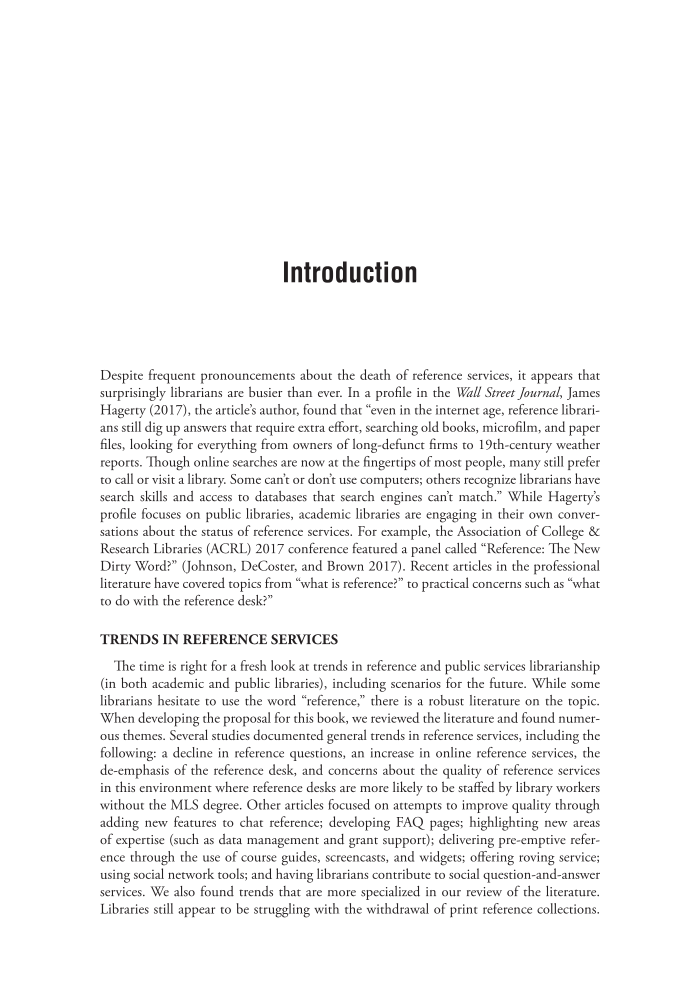Despite frequent pronouncements about the death of reference services, it appears that surprisingly librarians are busier than ever. In a profile in the Wall Street Journal, James Hagerty (2017), the article’s author, found that “even in the internet age, reference librari- ans still dig up answers that require extra effort, searching old books, microfilm, and paper files, looking for everything from owners of long-defunct firms to 19th-century weather reports. Though online searches are now at the fingertips of most people, many still prefer to call or visit a library. Some can’t or don’t use computers others recognize librarians have search skills and access to databases that search engines can’t match.” While Hagerty’s profile focuses on public libraries, academic libraries are engaging in their own conver- sations about the status of reference services. For example, the Association of College & Research Libraries (ACRL) 2017 conference featured a panel called “Reference: The New Dirty Word?” (Johnson, DeCoster, and Brown 2017). Recent articles in the professional literature have covered topics from “what is reference?” to practical concerns such as “what to do with the reference desk?” TRENDS IN REFERENCE SERVICES The time is right for a fresh look at trends in reference and public services librarianship (in both academic and public libraries), including scenarios for the future. While some librarians hesitate to use the word “reference,” there is a robust literature on the topic. When developing the proposal for this book, we reviewed the literature and found numer- ous themes. Several studies documented general trends in reference services, including the following: a decline in reference questions, an increase in online reference services, the de-emphasis of the reference desk, and concerns about the quality of reference services in this environment where reference desks are more likely to be staffed by library workers without the MLS degree. Other articles focused on attempts to improve quality through adding new features to chat reference developing FAQ pages highlighting new areas of expertise (such as data management and grant support) delivering pre-emptive refer- ence through the use of course guides, screencasts, and widgets offering roving service using social network tools and having librarians contribute to social question-and-answer services. We also found trends that are more specialized in our review of the literature. Libraries still appear to be struggling with the withdrawal of print reference collections. Introduction
Document Details My Account Print multiple pages
Print
You have printed 0 times in the last 24 hours.
Your print count will reset on at .
You may print 0 more time(s) before then.
You may print a maximum of 0 pages at a time.




















































































































































































































